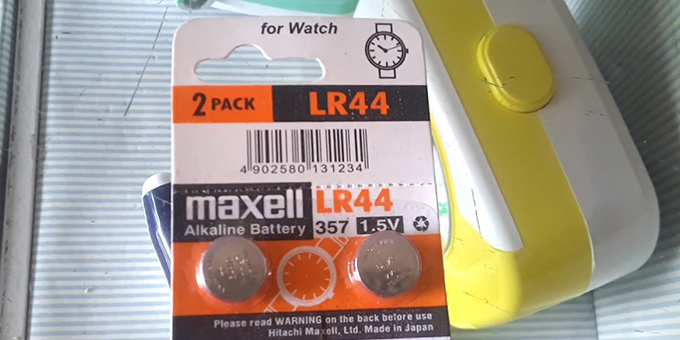Have you ever wondered how your car starts on a cold morning? It all comes down to the battery and the proper voltage. A car battery usually runs on 12 volts. But did you know that getting this voltage just right can make a big difference?
Imagine you’re ready to go on a trip. You hop in your car, turn the key, and… nothing happens. Frustrating, right? This can happen if your battery isn’t supplying the right voltage. Proper voltage ensures your car runs smoothly, helping it last longer.
In this article, we’ll explore the proper voltage for a car battery. We’ll dive into why it matters and how to check it. By the end, you’ll understand how to keep your car ready to go, no matter what. Ready to learn more about your car’s battery? Let’s get started!

Understanding The Proper Voltage For Car Battery Health
The proper voltage for a car battery is crucial for smooth engine starts. Most car batteries operate at 12.6 volts when fully charged. If your battery drops below 12.4 volts, it might struggle to start your car. Fascinatingly, a battery can lose power without warning! Regularly checking your battery’s voltage can prevent unexpected breakdowns. Keeping it in the right voltage range ensures reliability and longevity, making maintenance a smart choice for any car owner. Curious about how to check it?
Standard Voltage Levels for Car Batteries

Explanation of the typical voltage range for automotive batteries.. Comparison between 12V and 6V batteries..
Car batteries usually come in two standard voltages: 12V and 6V. Most cars use 12V batteries, making them a popular choice. These batteries give enough power to start engines and run lights. On the other hand, 6V batteries are often found in older vehicles or certain types of farm equipment. They’re like the little siblings—smaller but still mighty!
| Battery Type | Typical Voltage |
|---|---|
| 12V Battery | 12 Volts |
| 6V Battery | 6 Volts |
In general, keep these voltage levels in mind. A battery with too low voltage can leave you stranded, and nobody wants that! So, whether you’re on a long trip or just going to the grocery store, knowing your battery voltage is key.
How to Measure Car Battery Voltage
Tools required for voltage measurement.. Stepbystep process for measuring battery voltage safely..
To measure car battery voltage, you need some tools. A digital multimeter is the best choice. It’s easy to read and accurate. You will also need safety glasses and gloves to protect yourself. Follow these steps to measure the voltage safely:
- Turn off your car.
- Wear your safety gear.
- Set the multimeter to the “DC voltage” setting.
- Connect the red lead to the positive terminal.
- Connect the black lead to the negative terminal.
- Read the voltage displayed on the multimeter.
This process helps you know if your battery is working properly and can help you keep your car running smoothly.
How do you check car battery voltage at home?
You can check car battery voltage at home using a digital multimeter and following easy steps.
Signs of Incorrect Voltage in Car Batteries
Common symptoms indicating voltage issues or battery problems.. Longterm effects of operating a vehicle on improper voltage..
Have you ever noticed your car acting a bit weird? If it struggles to start or the lights flicker, these could be signs of voltage trouble. Another clue is if the radio starts playing only when it feels like it! Consistent wrong voltage can drain your battery quickly and may even harm other parts of your car. It’s like feeding your pet the wrong food; it just won’t end well. If you keep driving with these issues, you might end up with a battery that leaves you stranded.
| Signs of Incorrect Voltage | Long-term Effects |
|---|---|
| Difficulty starting the engine | Poor battery lifespan |
| Dimming headlights | Engine damage |
| Faulty electronics | Increased repair costs |
Factors Affecting Car Battery Voltage

Environmental influences on battery performance.. Role of battery age and condition in voltage stability..
Many things can affect how well a car battery works. Environment plays a big part. High heat or freezing cold can change battery voltage. Older batteries can struggle with power too. Battery age makes it harder to hold a steady charge. If a battery is worn out, it may not give enough voltage. Keeping your battery clean and checking its age helps keep your car running smoothly.
What affects battery voltage?
Temperature, battery age, and battery condition are major factors. High temperatures can boost voltage short-term. Cold weather can drain it. Old batteries may not store energy like new ones. Regular check-ups are key!
Maintaining Proper Voltage for Optimal Performance
Tips for regular maintenance to ensure correct voltage.. Importance of periodic voltage checks and battery health assessments..
To keep your car battery strong, regular checks are key. Here are some simple tips:
- Check the battery voltage at least once a month.
- Clean any dirt or corrosion on battery terminals.
- Look for any signs of damage or leaks.
Why check often? It helps spot issues before they get worse. A healthy battery lasts longer and performs better. Remember, a car battery should have a voltage between 12.6 to 12.8 volts when fully charged.
How often should I check battery voltage?
You should check the battery voltage at least once a month. This keeps everything running smoothly.
Why is battery health assessment important?
Battery health helps avoid breakdowns and extends battery life. Regular assessments let you catch problems early!
When to Replace Your Car Battery
Indicators of battery failure related to voltage discrepancies.. Guidelines for selecting a new battery for optimal performance..
Watch for signs that your battery needs replacing. If your lights are dim or start and stop unexpectedly, it might mean trouble. Also, a battery should show about 12.6 volts when fully charged. If it drops below 12.4 volts, consider a new one. Choose a battery that matches your car’s specs for the best results.
How do I know when to replace my car battery?
Check for weak performance, like slow cranking or battery warning lights. If voltages fall below recommended levels, it’s time to act.
Indicators of Battery Failure:
- Dimming headlights
- Slow engine crank
- Battery warning light on dashboard
Look for a new battery that fits your vehicle’s needs. This ensures optimal voltage and performance.
Myths and Misconceptions about Car Battery Voltage

Common myths regarding voltage and battery efficiency.. Clarifying misconceptions with factual information..
Many people have ideas about car battery voltage that are not true. One common myth is that a higher voltage means better battery performance. This isn’t accurate. An optimal voltage is necessary for efficiency, often around 12.6 volts for a fully charged car battery. Here are some other myths:
- Myth: All batteries perform best at the same voltage.
- Myth: Discharging a battery completely is okay.
- Myth: Cold weather has no impact on battery efficiency.
Understanding these myths helps you take care of your battery better. Remember, a well-maintained battery lasts longer and works better!
What voltage is best for a car battery?
The best voltage for a car battery is about 12.6 volts when it’s fully charged. Keeping it within this range ensures your car runs smoothly.
Conclusion
In conclusion, using the proper voltage for your car battery is essential for its health. Most car batteries need about 12.6 volts when fully charged. If yours drops below 12 volts, it’s time to recharge. Check your battery regularly and keep an eye on its voltage. For more tips, read our battery maintenance guide and keep your vehicle running smooth!
FAQs
Sure! Here Are Five Related Questions On The Topic Of Proper Voltage For A Car Battery:
Sure! Car batteries usually work best at around 12.6 volts when they’re fully charged. If the voltage drops below 12.4 volts, the battery might be weak. When you start your car, the voltage can go higher, around 14 volts, because the car’s engine helps charge it. Keeping your battery at the right voltage helps your car work well!
Sure! Please provide the question you would like me to answer.
What Is The Standard Voltage Of A Fully Charged Car Battery?
A fully charged car battery usually has a voltage of about 12.6 volts. This is how we measure its power. When the battery is working well, it can provide enough energy to start the car. It’s important to keep the battery charged for your car to run smoothly.
How Can You Safely Measure The Voltage Of A Car Battery?
To measure a car battery’s voltage safely, first, wear safety goggles and gloves. Then, turn off the car and open the hood. You need a tool called a multimeter to measure voltage. Place the red wire on the positive (+) terminal and the black wire on the negative (-) terminal. Read the number on the multimeter; that’s the battery’s voltage!
What Are The Signs That A Car Battery May Have A Low Or Insufficient Voltage?
If your car battery has low voltage, you might notice a few signs. The car may not start at all or sound weak when you try. The lights inside or outside the car might be dim or flickering. You could also smell a strange odor, like rotten eggs, coming from the battery. If you see these signs, it’s a good idea to check the battery or ask someone for help.
How Does Temperature Affect The Voltage Performance Of A Car Battery?
Temperature affects a car battery’s voltage a lot. When it’s really cold, the battery has a hard time giving power. You might notice your car takes longer to start in winter. In hot weather, the battery can work better but might wear out faster. So, good temperature helps the battery work well!
What Voltage Should You Expect From A Car Battery When It Is In Good Condition But Not Actively Being Charged?
You should expect a car battery to show about 12.6 volts when it’s in good condition. This means it’s fully charged and ready to use. If the voltage drops below 12.4 volts, the battery might not work well. Remember, a battery needs good voltage to start the engine and power other parts of the car!
Resource:
- Battery Maintenance Tips: https://batteryuniversity.com/learn/article/how_to_measure_voltage
- Understanding Voltage and Battery Health: https://www.explainthatstuff.com/howcarbatterieswork.html
- How Temperature Affects Car Batteries: https://newsroom.aaa.com/auto/batteries/
- Car Battery Safety and Testing Guide: https://www.consumerreports.org/cro/car-batteries/buying-guide/index.htm
{“@context”:”https://schema.org”,”@type”: “FAQPage”,”mainEntity”:[{“@type”: “Question”,”name”: “Sure! Here Are Five Related Questions On The Topic Of Proper Voltage For A Car Battery:”,”acceptedAnswer”: {“@type”: “Answer”,”text”: “Sure! Car batteries usually work best at around 12.6 volts when they’re fully charged. If the voltage drops below 12.4 volts, the battery might be weak. When you start your car, the voltage can go higher, around 14 volts, because the car’s engine helps charge it. Keeping your battery at the right voltage helps your car work well!”}},{“@type”: “Question”,”name”: “”,”acceptedAnswer”: {“@type”: “Answer”,”text”: “Sure! Please provide the question you would like me to answer.”}},{“@type”: “Question”,”name”: “What Is The Standard Voltage Of A Fully Charged Car Battery?”,”acceptedAnswer”: {“@type”: “Answer”,”text”: “A fully charged car battery usually has a voltage of about 12.6 volts. This is how we measure its power. When the battery is working well, it can provide enough energy to start the car. It’s important to keep the battery charged for your car to run smoothly.”}},{“@type”: “Question”,”name”: “How Can You Safely Measure The Voltage Of A Car Battery?”,”acceptedAnswer”: {“@type”: “Answer”,”text”: “To measure a car battery’s voltage safely, first, wear safety goggles and gloves. Then, turn off the car and open the hood. You need a tool called a multimeter to measure voltage. Place the red wire on the positive (+) terminal and the black wire on the negative (-) terminal. Read the number on the multimeter; that’s the battery’s voltage!”}},{“@type”: “Question”,”name”: “What Are The Signs That A Car Battery May Have A Low Or Insufficient Voltage?”,”acceptedAnswer”: {“@type”: “Answer”,”text”: “If your car battery has low voltage, you might notice a few signs. The car may not start at all or sound weak when you try. The lights inside or outside the car might be dim or flickering. You could also smell a strange odor, like rotten eggs, coming from the battery. If you see these signs, it’s a good idea to check the battery or ask someone for help.”}},{“@type”: “Question”,”name”: “How Does Temperature Affect The Voltage Performance Of A Car Battery?”,”acceptedAnswer”: {“@type”: “Answer”,”text”: “Temperature affects a car battery’s voltage a lot. When it’s really cold, the battery has a hard time giving power. You might notice your car takes longer to start in winter. In hot weather, the battery can work better but might wear out faster. So, good temperature helps the battery work well!”}},{“@type”: “Question”,”name”: “What Voltage Should You Expect From A Car Battery When It Is In Good Condition But Not Actively Being Charged?”,”acceptedAnswer”: {“@type”: “Answer”,”text”: “You should expect a car battery to show about 12.6 volts when it’s in good condition. This means it’s fully charged and ready to use. If the voltage drops below 12.4 volts, the battery might not work well. Remember, a battery needs good voltage to start the engine and power other parts of the car!”}}]}




